"I am basically ridiculous" - Tom Baker talks Doctor Who, Jodie Whittaker, and the origins of that famously long scarf
The Fourth Doctor on his former escapades, and what he thinks of the first female Doctor Who
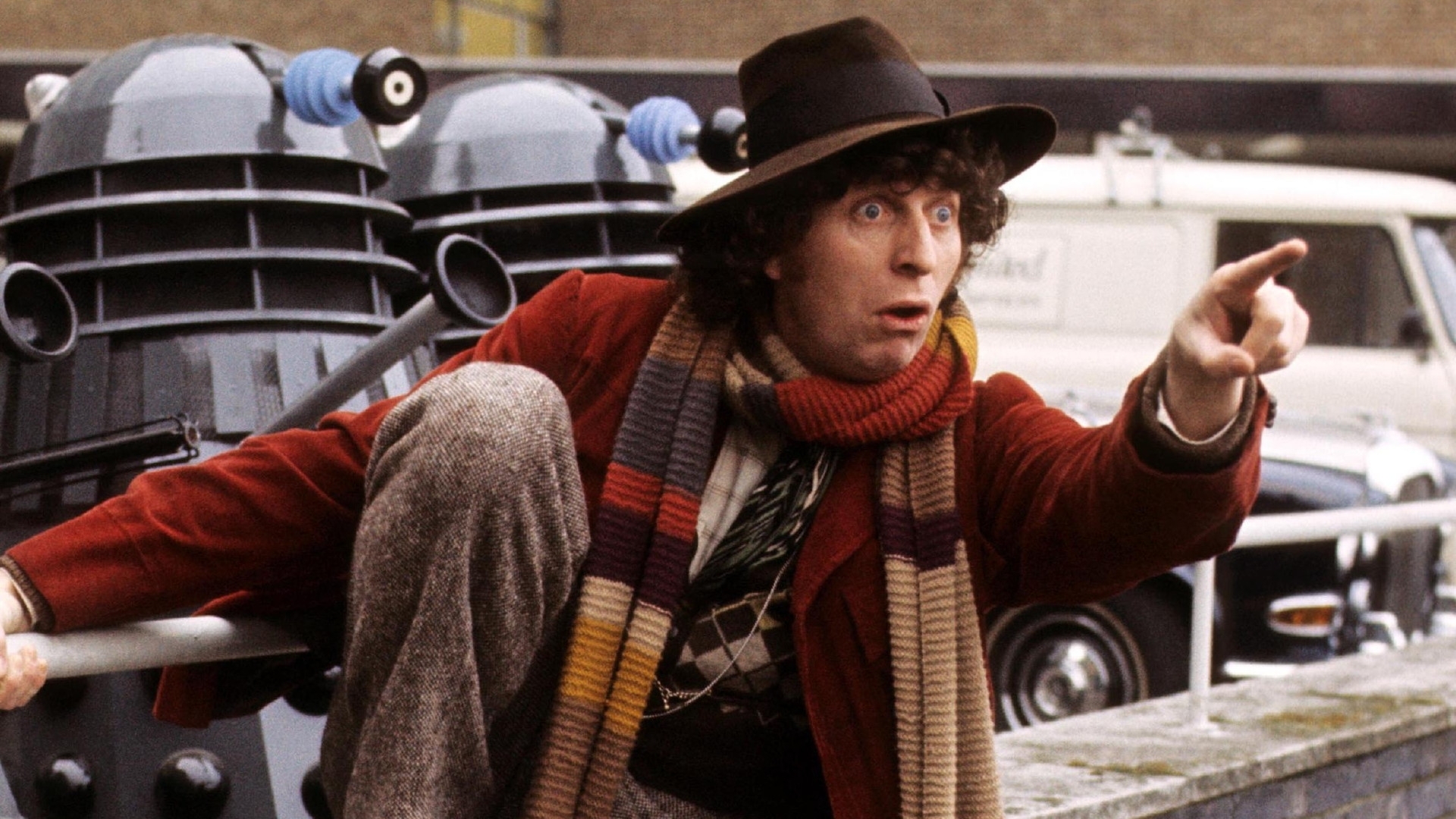
"It is extraordinary how it has lasted, even though I am half a century older! Ha!” Tom Baker is on the phone to our sister publication SFX magazine to celebrate the Blu-Ray release of Doctor Who season 12, that rich, mischievous voice still sounding like eloquent chocolate. He’s 84 – small change to Time Lords – and while the fine line between Baker and the role that made him immortal remains a magnificently entertaining blur, there’s a reflective quality too, an amusement and an amazement at the Doctor’s impact on his life.
“It was me, playing this kind of zany, crazy, benevolent alien,” he admits. “And that’s what I am, I suppose. A benevolent alien.” It may be the most perfect piece of casting in TV history. The man plucked from a building site to become the loon-eyed champion of Saturday nights, fighting evil with infinite reserves of wit, wool, and jelly babies. Actor and Time Lord quickly became indivisible to the public, the pure force of Baker’s charisma propelling the show to new heights of popularity.
“I felt it was just another side of me, someone who was romantic and silly, but who had a streak of heroism in him. And then I got all the best lines in the piece! Ha ha!” That laugh booms through the ether, unmistakable, undimmed. Is it Saturday night already?
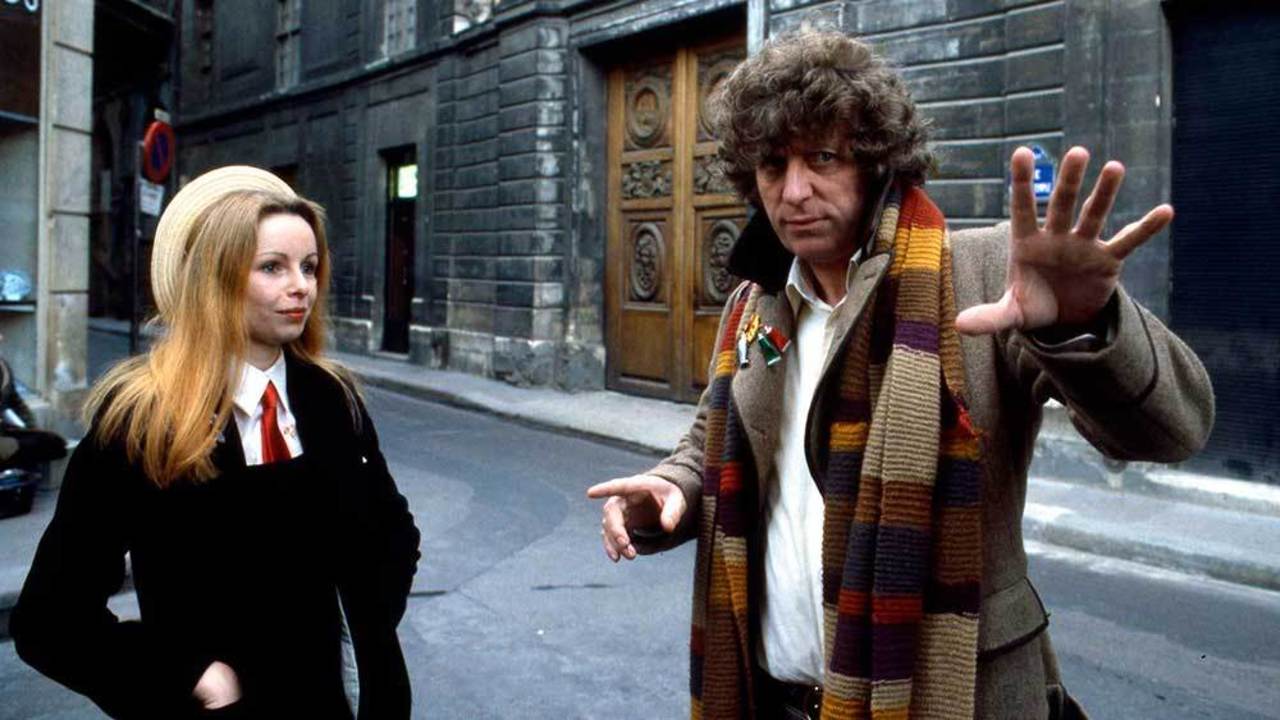
The Doctor was a star-making part for you, and you arrived with such a bang on screen. Were you prepared for just how much your life would change?
"Well, no. The impact of Doctor Who astounded me. It was just amazing. To suddenly be – absolutely overnight – famous, everywhere. It was just wonderful. I’d always wanted to be famous, I think."
Can you remember the Saturday your first episode was shown? How did you feel that day? Were you nervous?
"I watched my first episode, yes. I had mixed feelings because of the way I’d done it, groping my way into the part. I didn’t know how it was going to be received, of course, but the very next day, when I was out on the Sunday, people were waving to me and saying how happy they were to see me.
It was astounding, absolutely astounding. In a strange way it has never entirely gone away, because people recognise me all the time in Waitrose or wherever I am. I’m often in Waitrose, it’s one of my day centres... They introduce me to their grandchildren and there are lots of selfies taking place all the time."
You said you didn’t know what to do with the role at first. How did you find your take on the Doctor?
"My response to it was just childlike. I was brought up in a very religious background. Roman Catholic Liverpool. And so I was able to believe in fantastic things, guardian angels and voices and powerful beings watching over us and miracles and all that sort of thing. That’s the grist of how I was brought up, like every child that’s brought up religiously. And so I was able to quite accept it all and not do a tongue-in-cheek send-up or whatever.
Get sneak previews, exclusive competitions and details of special events each month!
I could play this wonderful, benevolent creature who was so jolly and kind and heroic and silly. In fact, very like me, really. I embraced it, and everybody liked it, and so it never changed, really, did it? I suppose I grew older, but the performance was always the same because the Doctor cannot fundamentally change. He can’t suddenly become hopeless or violent or aggressive. He remains this benevolent figure that floats around, this good-hearted wizard in space, doing good deeds. And that suited me."
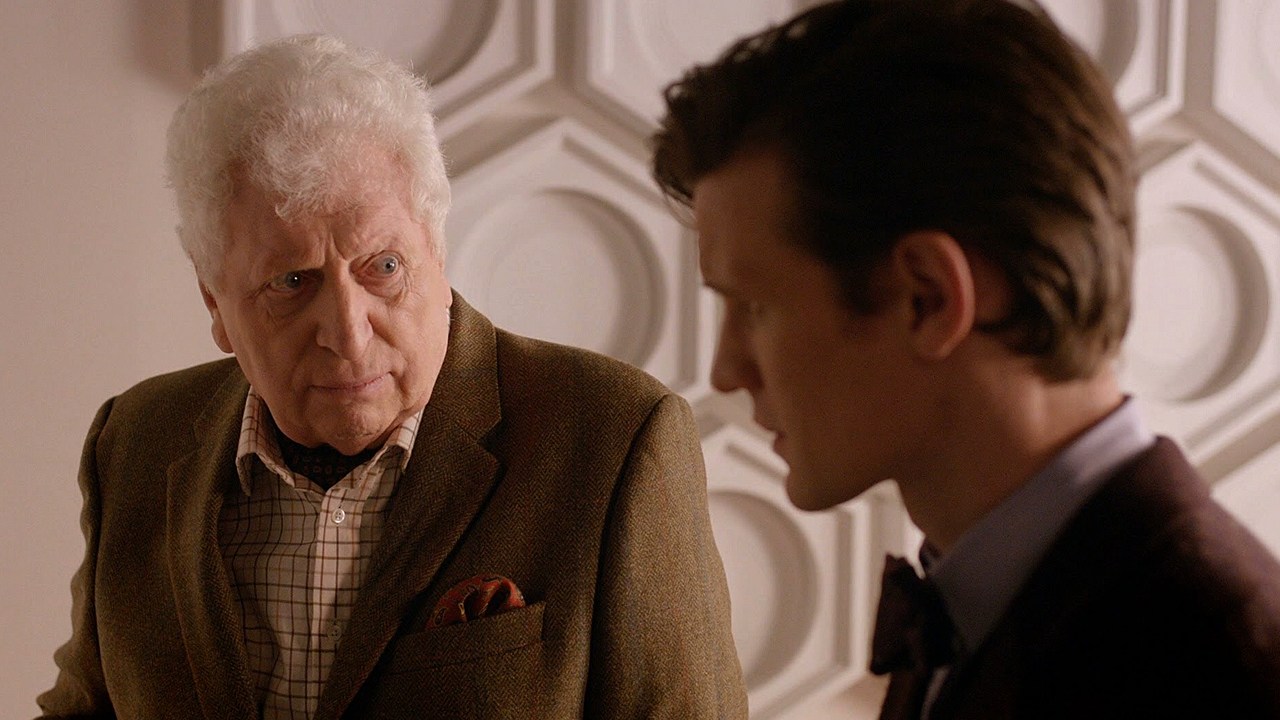
You were playing the Doctor in the studio and you were playing him in the street, too. Did the character ever exhaust you?
"It did sometimes exhaust me. Also, of course, I had a different life, because at the same time I had my voiceover life and all my mixing with journalists and other reprobates in Soho. And so I was very careful to maintain the image of the good Doctor if I was in public, out in the street or visiting a school or whatever it was. I guarded that very, very carefully, and still do.
Some of my friends who played tough guy parts on television would tell me hair-raising stories of not being able to go out. I remember Edward Woodward telling me, when he was playing Callan – and he was a very gentle man – he said he couldn’t go into a bar without some silly fellow saying, “Come on, get outside, let’s see how hard you are...” I had none of that. No one would have dreamed of saying that to Doctor Who. Anyway, I would have whipped out my sonic screwdriver and made them disappear..."
People must have regarded you more like Santa Claus...
"Well, yes, they did. I promoted Doctor Who very seriously because it was my living and I felt that I owed it to the BBC and to myself. And so when I went into hospitals, visiting the sick, the children, I went from one bed to the other and the children were all excited – not always, of course, because sometimes I was meeting some very sick children, and then that was very tough indeed, because very sick children were always surrounded by their frantic parents. I remember one time a doctor saying to me, 'Tom, I want you to come and see a boy who’s in a coma.'"
"It suited me to be the good-hearted wizard doing good deeds..."
"And there was a little boy in a coma, surrounded by about ten of his family, all very, very pale and grief-stricken. This little boy had been hit by a car or something. And so then I had to go through this painful routine. I sat down by him and said, “George, this is Doctor Who here. K-9 told me about you, that you’d been in an accident.” And I talked about the show and told him how we were all concerned for him and looking forward to him getting better. And each time I was doing this the parents and all these people leaned in, with tremendous intensity, listening to my every word as I tried to coax this child out of a coma. It was agonising.
I wish I could say the boy suddenly opened his eyes and said, “Hello, Doctor,” but he didn’t open his eyes. And when I was leaving the parents shook hands with me and embraced me and thanked me. It was a very amazing moment for me. Although I’d failed. I couldn’t pull off the miracle as I can on the telly. I don’t know if the boy ever did recover. So all these little things took place all the time, and I went along with them. And anyway, I’m quite an easygoing, good-natured old fellow. I don’t mind people stopping me in the street and making jokes about me. I’m used to that, because I am basically ridiculous."
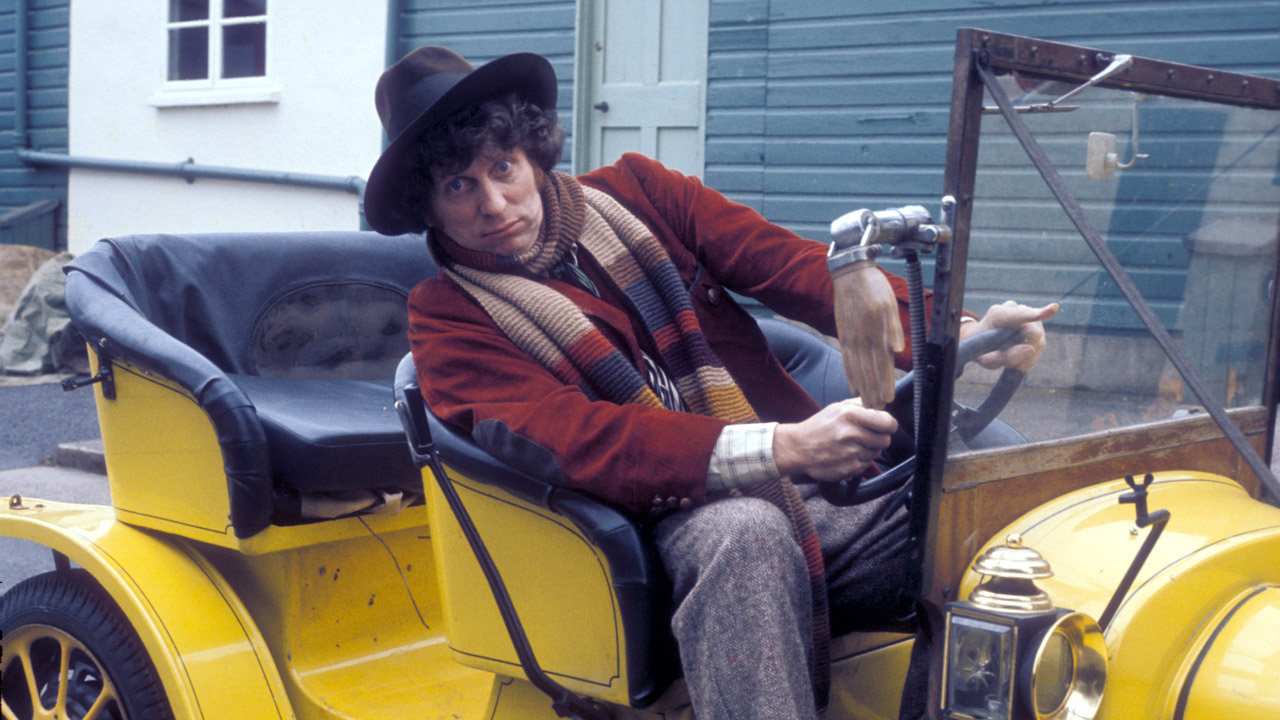
Costume designer James Acheson gave you such a perfect outfit. Did the costume help you find the character?
"We spent days dashing around and trying on clothes. All kinds of clothes. Gradually that elegant raggedness emerged. And then Jim Acheson gave some wool to a lady with the lovely name of Begonia Pope. And he sent round so much wool... I don’t suppose he knew much about knitting, though he knew a lot about everything else.
And this woman knitted up all the wool he’d sent and it filled the front room of her flat. So when it arrived it was this immense scarf. And of course we laughed. For a moment I think people thought it should be shorter but Jim just thought it was terribly funny, and it was his influence that left us with this long scarf. And so a little piece of legendary costume was born."
Have you ever considered writing a Doctor Who novel?
"Ah, no, I don’t think so. I’m notorious for my bad taste... After so long I’d have to be radical and then my bad taste would betray me. I’m a bit intemperate in my jokes or ideas. The directors I loved most, of course, were the directors who agreed with me. I’m still very vulnerable to people who agree with me.
I really admire people who agree with me. Barry Letts directed one of my stories [The Android Invasion] and there were some kind of beings, robots or something like that, and I remember one of them pointing and I said, 'Is that finger loaded?' And Barry Letts thought that was very funny and left the line in. And from then onwards I began to make little suggestions here and there. And quite often they were accepted. Quite often they were rejected as well, with horror, and I can’t blame them."
Was it a wrench to give up a part that was so perfect for you?
"Going to work playing the Doctor was blissful. That’s why I stayed too long, I suppose. I dare say by the end I was tired and exhausted. When I resigned they accepted with alacrity! At the time I put in my notice the producer was John Nathan-Turner. Later on I became quite friendly with John Nathan-Turner but he and I didn’t get on at all then – I didn’t like his taste at all, and he didn’t like mine sometimes, but he put up with it. So when I said, 'Listen, I think I’ve had enough,' he was very swift to shake hands and say okay.
By the end I don’t think I was bringing anything new, and I was rather fed up. I didn’t blame my resignation on him at all but we just didn’t have the same taste. He wanted to impose his vision. I’d experienced that before. Obviously Philip [Hinchcliffe] had such a fantastic influence on the first stories I did, and then he was followed by Graham Williams, who tried to rein me in. He used to use phrases like that! 'We’d better rein that Tom Baker in...'"
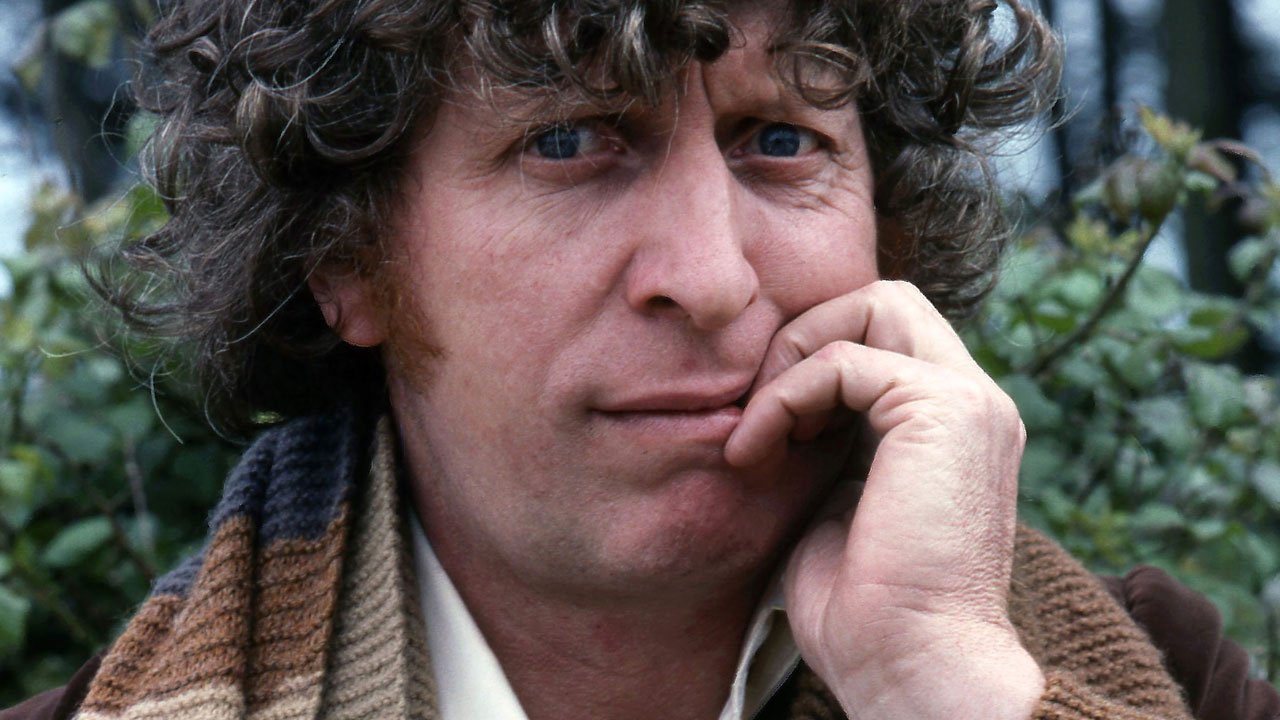
Did that make you more determined when he said that?
"Oh yeah, of course. I had to take some notice of what the producer was saying. But the feedback I was getting was in the street. People were on scaffolding, shouting, 'Aye, aye Doctor!' All over the place. People would stop me in the street saying how much they liked some quirky bits I’d put in. And so that was the feedback I’d be getting. And because I wasn’t subverting it or doing anything fundamentally bad, I thought well, the audience is right, so let it happen!"
So we finally have a woman playing the Doctor now. Does a female take on the role appeal to you?
"Well, yes, sure it does. And people say she’s very good. And why not a female... Does she wear trousers and things like that?"
She does.
"Oh, does she."
And a long coat...
"And a scarf?"
No scarf. Nobody dares go near the scarf...
"[Laughs] They should put that in. She opens a cupboard and there’s a long scarf in there and she just screams!"
This feature originally appeared in SFX magazine, issue 302, which is still on sale now and includes a massive celebration of all 13 incarnations of the Doctor! Pick up your copy now from your local newsagents or subscribe so you never miss an issue.

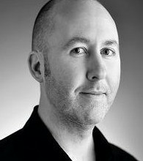
Nick Setchfield is the Editor-at-Large for SFX Magazine, writing features, reviews, interviews, and more for the monthly issues. However, he is also a freelance journalist and author with Titan Books. His original novels are called The War in the Dark, and The Spider Dance. He's also written a book on James Bond called Mission Statements.


